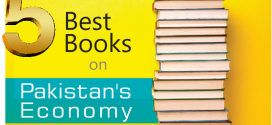At the onset of this century, we found ourselves to be dying to one world, and not yet being able to be born into another.
We are today adrift in a more uncertain and surely more chaotic world burdened with the same old problems, perhaps in their acutest form. Wars of aggression and attrition, invasions in the name of self-defence, military occupations, massacres and genocides, human tragedies and humanitarian catastrophes, and a culture of extremism and violence now define the new world ‘disorder.’
Yet, all of us live simultaneously in our own regions and countries and in the world at large. Peoples and cultures are increasingly hybrid. Distances have shrunk. The same icons, whether on a movie screen or a computer monitor, are recognizable from Berlin to Bangalore, America to Asia, Africa to Europe or Latin America to Middle East. We are all consumers in the same global economy.
We are all influenced by the same tides of politics and literature, and also equally affected by economic and technological change taking place anywhere in the world. We are all connected, wired and interconnected. Much of this is not new. Human beings have interacted across the globe for centuries. But today’s world is different. We find today’s thoughts and theories, poetry and music, joy and grief all being transmitted across the globe at an electronic pace.
No wonder, the appearance of ‘Shifting Sands’ an Urdu-English translated version of Amjad Islam Amjad’s poems of love and other verses brings fresh air to the English-speaking world as a gift of this new millennium. What impresses me most is the author’s dedication of this work to ‘the dreams of a peaceful and equality-based neighbourhood for every human being in the Global Village of the 21st Century.
Two renowned Canadian academics, Dr.Baidar Bakht, a civil engineering graduate from Aligarh University, and now a professor at University of Manitoba, and Dr. Marie-Anne Erkie, also a civil engineering Ph.D. who now teaches as Professor Emeritus at Royal Military College of Canada and also at Queens University, joined together in selecting and putting together this over 600-page book containing simultaneous English and Urdu versions of Amjad’s poetry. Their selection represents the vast variety of the poet’s thoughts.
Interestingly both professors are bridge-building specialists, and in this literary work, their end-product Shifting Sands virtually builds new bridges linking Amjad’s poetry to the ‘dreams’ of peace and equality in our globalizing but tormented world of today. As a diplomat who spent almost his entire professional lifetime in seeking to build bridges between and among states, I could not find a more meaningful quest for global peace and harmony.
My thoughts spontaneously go back to the very beginning of the new millennium. In 2001, as Pakistan’s Ambasssador and Permanent Representative to the United Nations, I was part of a similar effort at the UN in bringing out a symbolic collection of poetry from around the world to mark the Millennium Assembly of the United Nations giving the historic occasion an unusual literary flavour.
Entitled ‘Mille Fleurs’ (Thousand Flowers), the anthology genuinely reflected the ‘diversity and uniqueness which creative human activity exhibits as well as the common inspiration and feeling that binds us in our shared humanity.’ Almost all permanent representatives at the UN had contributed poems that meant something to them or to their cultures. It was at once an ‘international’ act of faith in poetry and an evidence of its value.
From Pakistan, I contributed three pieces to that collection, one each by Faiz, Faraz and Parveen Shakir. It was 10 years ago. I confess at that time I knew Amjad Islam Amjad only as an eminent writer of popular drama series, and had almost all of his television serials videos in my personal collection. Like millions of Pakistanis, I admired most of his real life depiction of our feudal society in the unforgettable Waaris. If today I am asked to contribute again to a global poetry collection, Amjad would instantly find a prominent place in it.
I am not a literary person, nor do I have the acumen of fathoming into the depth of philosophical poetry but Amjad’s verses are easy to grasp and relate to. One can discern the various colours from the portrait of life that he draws in his verses. He reminds me of my student day’s favourite Romantic poet William Wordsworth. If the purpose of a truly good poetry is to reduce stress in readers or listeners, calming them both physically and emotionally, Amjad seems to be acquitting himself with distinction.
Let me mention here my weakness to keep handy in a pocket size booklets the selected verses of poets that I respect and admire. Thanks to the courtesy of friends of literature in Pakistan, I have already had the nicely bound pocket editions of Diwan-i-Ghalib and Kalam-i-Iqbal printed for distribution to those who love poetry. I now await someone to come forward and have Faiz, Muneer Niazi and Faraz, the great poets of the last century and Amjad Islam Amjad, the great poet of this new century, encapsulated in similar non-commercial pocket editions.
Someone has said that ‘he who draws noble delights from sentiments of poetry is a true poet, though he has never written a line in all his life. I can never imagine myself being able to write poetry, though diplomats do try to use poetry in their diplomatic work: wrapping words in silk is the diplomat’s job. A diplomat may turn a lie into a ‘constructive ambiguity’ which is a way of defining poetry. But it’s always an occupational hazard: the stimulating place, the sheltered existence ‘and the ability to paraphrase the unknowable. Few diplomats will admit to using poetry as a survival strategy. Diplomats are like watchmakers: their art is hidden inside a bland, if polished, case.
In daily diplomatic routine one is to judge the quality of a negotiated text not by its content, but by its discards. At the end of the day, under a diplomat’s table one may find crumpled drafts, execrable points of order, and many a plain word. To survive, perhaps a diplomat needs poetry. Filed amidst the many layers of the brief, the short poem will refresh the bleary mind. Poetry reminds the diplomat that the best professional is the amateur.
Indeed, in Amjad’s Shifting Sands, the variety of things that different people may be looking for in poetical form are all there; the passion of love, the anguish of desire, the pain for suffering, the advocacy of social justice, the espousal of dignity, the concern for humanity at large and above all, the spontaneity of timelessness, a feeling of eternity beyond the confines of time and space.
And there is a distinctive lyrical value too in Amjad’s verses that adds a refreshing soulful touch of popular vivacity to his poetry. All these real life images and emotions from the world we are part of are enthrallingly captured by Amjad in his verses. It is perhaps this type of poetry that Shakespeare once called ‘sounds and sweet airs that give delight and hurt not.
Robert Frost had once said: ‘Poetry is what gets lost in translation.’ At least in Amjad’s translated poetry, he is proven wrong. Amjad has been translated even before but Shifting Sands is perhaps the first-ever translated collection of his poetry in a book form. Nothing seems to have been lost in this laudable effort for which one must compliment the two distinguished Canadian professors, the bridge-builders. Its contents manifest.
Let me conclude my tribute to Amjad Islam Amjad with just one verse from his poem, ‘Love is such a melody’ (Part 9, Page 507):
 Jahangir's World Times First Comprehensive Magazine for students/teachers of competitive exams and general readers as well.
Jahangir's World Times First Comprehensive Magazine for students/teachers of competitive exams and general readers as well.


